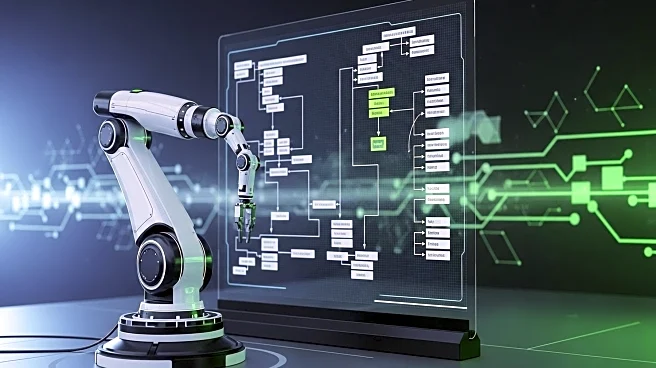What's Happening?
At the IEEE International Conference on Robotics and Automation, leading roboticists debated the future of robotics, focusing on whether data-driven approaches or model-based programming should lead the way. Daniela Rus and Russ Tedrake advocated for data-driven methods, emphasizing the importance of large-scale machine learning to enable robots to adapt to real-world tasks. They highlighted the use of multimodal datasets capturing human actions to train AI systems for precision and robustness. Conversely, Leslie Kaelbling, Aude Billard, and Frank Park argued for the continued importance of mathematical models, citing the need for theoretical understanding to ensure safety and efficiency in robotics. Animesh Garg suggested a hybrid approach, combining data-driven learning with structured models to harness the benefits of both.
Why It's Important?
The debate underscores a critical crossroads in robotics development, impacting how robots will be integrated into everyday environments like homes and hospitals. Data-driven approaches promise adaptability and practical experience, crucial for handling unpredictable human-centered tasks. However, reliance solely on data may lead to brittle systems lacking deep understanding, posing risks in safety-critical applications. The discussion reflects broader implications for industries relying on robotics, such as manufacturing and healthcare, where the balance between empirical data and theoretical models could determine the effectiveness and safety of robotic systems.
What's Next?
The robotics community is likely to continue exploring the integration of data-driven and model-based approaches, seeking a balance that maximizes the strengths of both. Future research may focus on developing hybrid systems that leverage large datasets while incorporating structured models to ensure robustness and safety. As robots increasingly enter real-world settings, ongoing debates and experiments will shape the trajectory of robotics innovation, influencing policy decisions and industry standards.
Beyond the Headlines
The debate highlights ethical considerations in robotics, such as the potential for data-driven systems to inadvertently reinforce biases present in training datasets. Additionally, the reliance on large-scale data raises questions about privacy and data security, especially when capturing human interactions. Long-term, the integration of robotics into daily life may shift cultural perceptions of technology, influencing how society interacts with and trusts autonomous systems.









